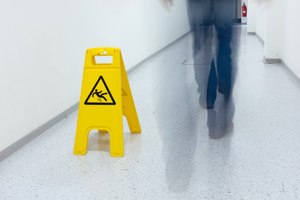
In slip and fall cases, the court typically looks at whether the defendant took reasonable steps to monitor or become aware of potentially dangerous situations, and then took appropriate steps to remedy them. But what if the owner of the business knew, because of the type of business being conducted, that the floors were likely to be slippery, to have water, food or other dangerous substances on them at any time? For example, what if a person slips and falls at a buffet-style restaurant, where customers regularly serve themselves, and regularly drop food on the floor?
Some jurisdictions, considering it reasonable that the owner of such an establishment should expect such conditions to exist, have eliminated the requirement that an injured person show negligence, based on what’s known as the “mode of operation” doctrine. In New Jersey, where this approach has limited application, the courts have identified specific requirements for its application:
- It only applies where the mode of operation" involves self-service, with customers independently handling products or merchandise
- It only applies in areas affected by the self-service operations—it may not be transferred to all parts of such a business
- The legal theory may also be used if the dangerous conditions were created by an employee, rather than a customer. For example, if a business has a self-service food bar, but an employee caused items to be on the floor, the doctrine can be used if another customer slips and falls on the items the employee caused to land on the floor.
Though a number of cases have been filed in Pennsylvania alleging liability under a “mode of operation” principle, the state has not yet recognized it as a valid doctrine.
Contact Barnard, Mezzanotte, Pinnie & Seelaus, LLP
At Barnard, Mezzanotte, Pinnie & Seelaus, LLP, we have fought for the rights of individuals throughout Delaware County since 1980. We offer a free initial consultation. To schedule an appointment, call us at 610-565-4055 or 302-594-4535 or contact us online

